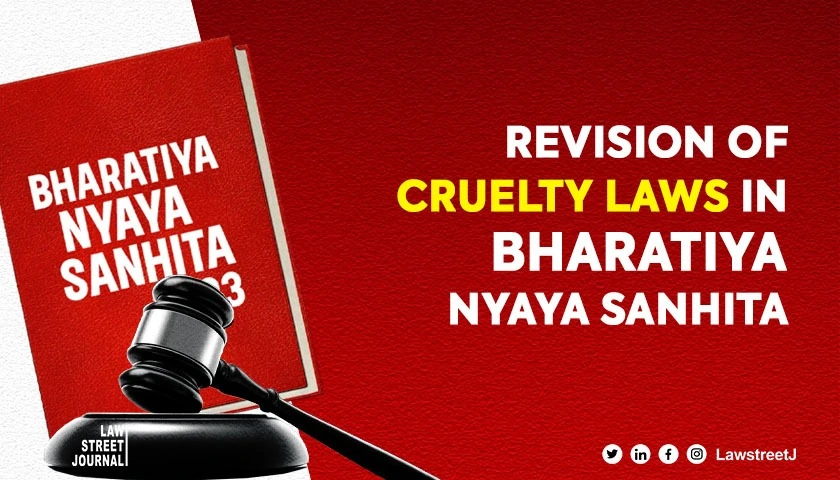NEW DELHI: The Supreme Court on Friday asked the central government to take into consideration the pragmatic realities and consider making necessary changes in Sections 85 and 86 respectively of the Bharatiya Nyaya Sanhita, 2023, before both the new provisions come into force.
It said annoyance, mere trivial irritations, quarrels between spouses, which happen in day-to-day married life, may not amount to cruelty as it asked the Centre to reconsider provision of Section 498 A IPC reproduced verbatim in the Bharatiya Nyaya Sanhita, 2023
A bench of J B Pardiwala and Manoj Misra emphasised tolerance to each other's fault to a certain bearable extent has to be inherent in every marriage and petty quibbles, trifling differences are mundane matters and should not be exaggerated and blown out of proportion to destroy the institution.
The court said the initiation of criminal proceedings would bring about nothing but hatred for each other. Taking the matter also to police destroy any chances of reconciliation and divorce plays a big role in upbringing of the children.
"A very technical and hyper sensitive approach would prove to be disastrous for the very institution of the marriage. In matrimonial disputes the main sufferers are the children. The spouses fight with such venom in their heart that they do not think even for a second that if the marriage would come to an end, then what will be the effect on their children," the bench said.
The court referred to its judgment in Preeti Gupta Vs State of Jharkhand, (2010) when the Supreme Court asked the legislature to reconsider the provision since a large number of complaints made in exaggerated manner caused enormous social unrest affecting peace, harmony and happiness of the society.
"We looked into Sections 85 and 86 respectively of the Bharatiya Nyaya Sanhita, 2023, which is to come into force with effect from 1st July, 2024 so as to ascertain whether the Legislature has seriously looked into the suggestions of this Court," the bench said.
The court found nothing but verbatim reproduction of Section 498A of the IPC.
The bench directed its Registry to send one copy each of this judgment to the Union Law Secretary and Union Home Secretary, for placing it before the Minister for Law and Justice as well as the Minister for Home.
The court allowed an appeal by Aachin Gupta against the Punjab and Haryana High Court's judgment which dismissed his plea to quash the FIR and charge sheet filed against him on a complaint by the wife alleging cruelty and dowry harassment.
It noted the allegations levelled by the first informant were quite vague, general and sweeping, even the police thought fit to drop the proceedings against the other members of the family.
"It would be a travesty of justice to hold that the proceedings initiated against a person can be interfered with at the stage of FIR but not if it has materialised into a chargesheet," the bench said.
The court said even if the FIR and the chargesheet disclosed the commission of a cognisable offence, the court with a view to doing substantial justice should read in between the lines the oblique motive of the complainant and take a pragmatic view of the matter.
Emphasising the need of tolerance, proportionality and adjustment which were the key factors for a successful marriage, the court on quashed dowry harassment case filed by a woman against her husband.
"Tolerance, adjustment and respect are the foundation of a sound marriage and petty quibbles and trifling differences are mundane matters that should not be blown out of proportion to destroy what is said to have been made in the heaven," the bench said.
The court said that the parents and close relatives of a married woman make a mountain out of a mole and instead of salvaging the situation and saving the marriage, their action brings about complete destruction of the marital bonds on trivial issues.
It also said the police machinery cannot be utilised for holding the husband at ransom so that he could be squeezed by the wife at the instigation of her parents or relatives or friends.

















